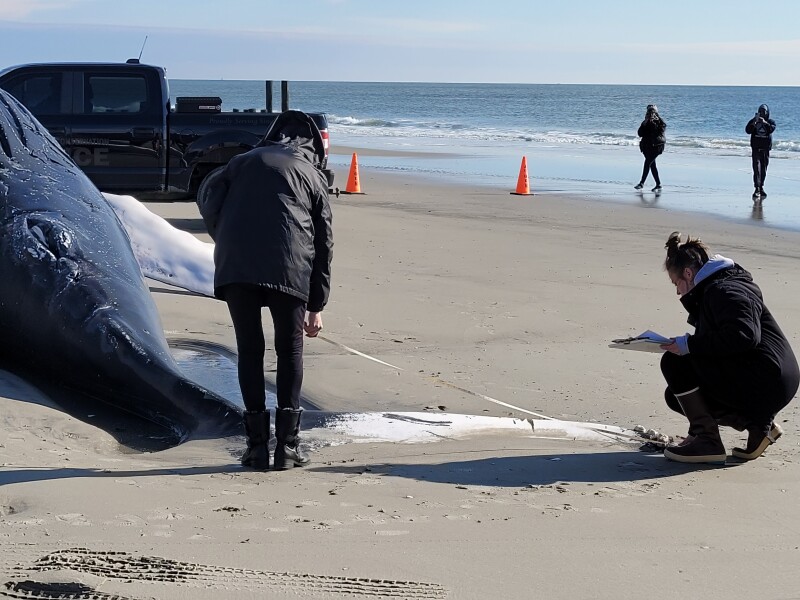New Jersey state officials say they are directing almost $2 million more toward studying environmental impacts of offshore wind power. New projects will monitor whales and harbor seals near wind energy projects off Atlantic City.
The announcement comes after months when Democratic Gov. Phil Murphy’s administration has been beset by pressure from offshore wind project critics and Republican legislators over a series of whale and dolphin strandings on New Jersey beaches.
The New Jersey Department of Environmental Protection and New Jersey Board of Public Utilities will also pitch in $100,000 to join the Responsible Offshore Science Alliance, a nonprofit organization that has fishing industry groups, federal and state agencies and wind power developers working together on environmental studies.
The newly announced projects will be funded through New Jersey’s existing Offshore Wind Research & Monitoring Initiative. Topping the list is deployment of a new whale detection buoy off Atlantic City.
The National Oceanic and Atmospheric Administration uses a network of acoustic buoys to help it track the highly endangered North Atlantic right whale population off the East Coast, and update its NOAA’s Slow Zones for Right Whales.
The Atlantic City buoy would join that system, and the project will “examine how to best use these data to inform management moving forward, including optimizing the response time of the warning signal sent to vessels and the buoy network along the eastern seaboard, educating stakeholders on the capabilities of this technology, and fostering dialogue about how to implement near real-time acoustic monitoring into wind energy development activities,” according to the state Department of Environmental Protection.
The project will be funded with a $602,135 grant awarded to the Woods Hole Oceanographic Institute for this project, administered through the New Jersey Sea Grant Consortium.
Monmouth University will get $1.2 million for an environmental DNA (eDNA) study to monitor marine species that are important to the ecology of coastal waters and the state’s recreational and commercial fisheries.
The eDNA is a relatively new approach that uses samples of ocean water, collected alongside traditional survey methods in and around the wind lease areas, and to identify and quantify DNA traces from organisms near sample locations. Data from the study will be used for assessing the potential impacts of building offshore wind turbine arrays species diversity during and after construction, according to the DEP.
Richard Stockton University and the Atlantic Marine Conservation Society will get a $682,890 grant to study movements and health of harbor seals, a marine mammal population that spends winters in Great Bay north of Atlantic City.
The DEP says the population is “robust…but more data is necessary is to better understand how harbor seals use the offshore space where wind energy leases are located.”
The study will tag harbor seals and collect their health data, “such as stress hormones, that should help assess the impacts of future OSW (offshore wind) related activities, including construction and operation,” according to the DEP.
Offshore wind developers Atlantic Shores Offshore Wind, LLC, and Ocean Wind II, LLC committed about $26 million for funding regional research and ecological monitoring. So far the state RMI program has put out $8.5 million for such projects.
State officials say they have also issued an updated request for proposals to deploy more offshore listening devices – “archival passive acoustic monitoring equipment” – to better track the distribution and habitat use of baleen whale species, including the right whale, off New Jersey’s coast.
Humpback whales, a protected but not federally endangered species, have washed up dead on the state’s beaches, fueling challenges from offshore wind critics who contend sonar used for surveying offshore wind power sites could have been a factor.
The DEP says expanding the acoustic network “will be part of a larger effort that includes collaboration with nearby state, regional, and federal entities seeking to protect marine mammals as offshore wind farms are developed along the eastern seaboard.
"The updated RFP will leverage funding towards a greater number of listening devices, prioritizing detection coverage. A future solicitation will be created for regional spatial analyses of whale movement and distribution patterns.”




